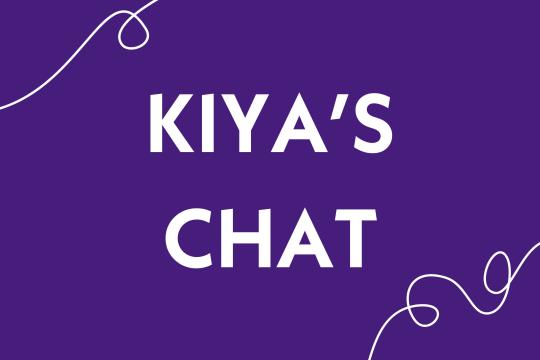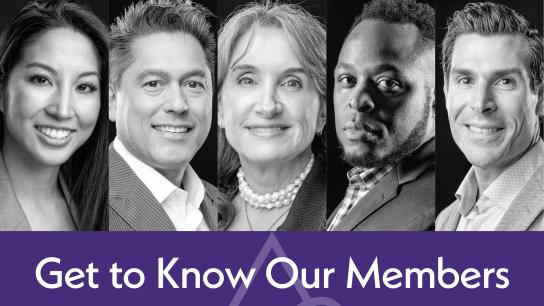
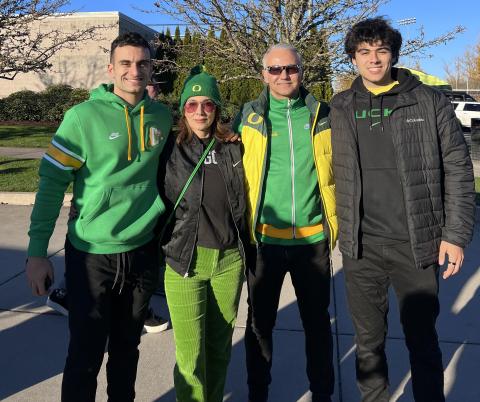
What inspired you to pursue a leadership role at The Aesthetic Society?
I had a desire to give something back to the plastic surgery specialty given how good it has been to me. Thirteen years ago, I had no idea how far up The Society’s leadership ladder I would climb, but I knew I wanted to get involved and give back. I had no other expectations. Over the years my involvement within the leadership team continued to grow to where I am now. I learned and developed a new set of abilities that taught me about being a leader and the skills that are required. I had the opportunity to learn from some of the best in The Society, and as a result I have become much better at engaging the plastic surgery community.
I owe this personal growth to the opportunities provided by The Society, and I hope others reading this follow suit and get involved. So, it has been a win-win situation… I have given back to The Society and specialty I love, and The Society has taught me the skills that I didn't have. That is priceless.
How do you see collaborations with other organizations contributing to The Society's mission? Are there specific partnerships that you believe have been particularly beneficial for The Society?
The Aesthetic Society has always been at the pinnacle of aesthetic education. That has been and will continue to be. But one thing that has evolved over the past decade, is the aesthetic ecosystem. The new aesthetic market is much more diverse than when I joined The Society. The current market is much broader, and it involves many layers of providers, hence, it requires a different type of market leadership in education than currently exists. One of the strengths of The Aesthetic Society has always been its ability to adapt and this new environment requires a new leadership. This has sparked The Aesthetic Society to work on the three pillars of relationships: the cores, the non-plastic surgeons, and the international plastic surgeons. The core specialties, our sister societies of facial plastics, dermatology, and oculoplastic surgeons are important partners in our mission. A close relationship with non-plastic surgeon providers e.g. the injectors, the estheticians and all the supporting providers is vital in advancing our cause. Lastly, we need to expand our international outreach and engage our international partners through our MOU programs. The aesthetic ecosystem is growing but it is hungry for an identity and a leader. I believe The Aesthetic Society is positioned to be that player.
Are there specific educational programs or resources that you've found to be especially impactful?
The Aesthetic Society’s forefront mission is education. As a society, we’ve always been adapting and advancing how we educate and how we communicate. I remember the days where we would just take a slide deck to present at our meetings. Those days are long gone and obviously the digital presentation has greatly evolved to what it is today. Today, we do a lot of video presentations which are powerful ways of engaging the audience and give them the opportunity to experience the actual operation in action. This tool is much more powerful, dynamic and valuable to our audience than just watching some slides. The COVID-19 pandemic also forced us to adapt and utilize the digital space for virtual and remote presentation. The virtual presentations have also greatly expanded our reach for audience. With a digital presence, we now have the capacity to reach anywhere and anytime in the world. This expands our global presence in education. Advancements in digital learning and building a global network of education are just two ways The Society has adapted over time to enhance learning and innovating new ways to engage our audience.
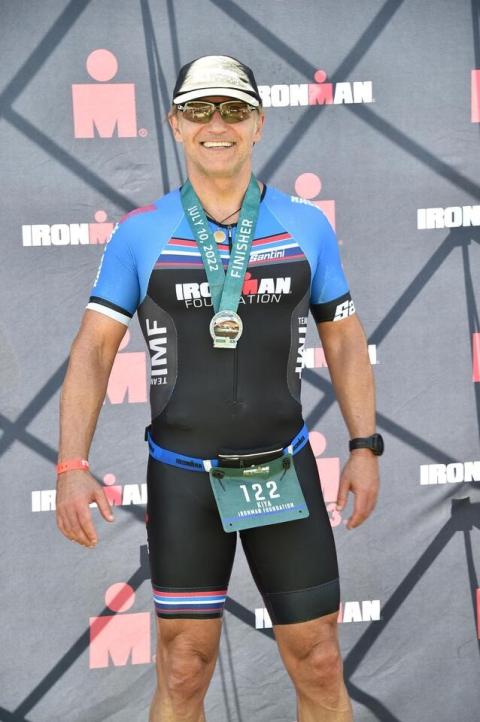
Can you share a personal experience or society project that is significant to you?
I would say the project that's going to shape the future of The Society is one that I became involved with through our Executive Retreat on adapting to the new aesthetic ecosystem. This work was started by some of my predecessors, but it became the focus of the Executive Retreat we had this past summer. It is an annual meeting where the leadership of The Society gets together and sets the goals and strategies that we want to accomplish. The focus for this year was what I discussed earlier: focusing on how The Aesthetic Society can remain as the pinnacle in the aesthetic market, where we can be the leader in the ever-expanding aesthetic ecosystem and figure out ways to collaborate with all entities involved, which are again the core specialties, the injectors, and the international plastic surgeons. We are taking the necessary steps towards this goal, with the potential to morph The Society and prepare it for the next decade.
What advice would you give to surgeons who are aspiring to contribute to the field of aesthetics?
My advice to the young surgeons and the surgeons who want to contribute to the field of aesthetics is to honor the past, to remain ethical, whether it is in your work, your presentations, or your marketing, and always think about the wellbeing of our specialty. The Society and the specialty of plastic surgery should be at the forefront of what we do. And always remember, the specialty has been so good to us, and we need to be good to it. Get involved at your local, regional and national societies. That's how we can advance the specialty going into the future.
How do you plan to continue the strategic focus of your presidency?
The strategic focus for my presidency began at the Executive Retreat; how to expand the reach of The Aesthetic Society and become the leader in the aesthetic market. We have set goals for our three pillars of engagement. These pillars include our relationships with the core specialties (i.e. facial plastics, dermatology, and oculoplastic surgeons), the non-plastic surgeons (the injectors, the estheticians, and supporting providers), and the international group of plastic surgeons.
Why do you have such a strong interest in growing The Society’s International Active Membership and MOUs?
The aesthetic plastic surgery and aesthetic medicine sectors are growing rapidly, and globally. As a matter of fact, even though the U.S. is still number one in the aesthetic market, other countries are catching up. These countries include Brazil, Mexico, Europe, and many Asian countries. If you want to remain a leader at the forefront of the aesthetic market, you need a global outreach. That will be determined by our ability to adapt. Historically, all providers and the aesthetic industry as a whole, would come to The Aesthetic Society because we were the only entity. Now there are multiple entities in the market for providers and industry to choose from. As part of staying competitive and a leader, we need to establish a global identity and that requires global outreach via Memorandums of Understanding (MOU’s). These MOU’s will set the stage for how we engage and develop relationships with our international colleagues. These relationships will be pivotal for what we are trying to accomplish. In a reciprocal fashion, we will provide our education and expertise to a global audience and vice versa.
How do you see the next steps?
The next steps will be growing the platform that we have established for ourselves. This will be a major task. It will take perseverance, continuity from president to president. During my year, I will continue what my predecessor, Dr. Mindy Haws has started, and Dr. Tracy Pfeiffer will follow me. With this approach, we can build on what we have started to accomplish.
What are your plans for expansion of the MOU program?
The first plan for expanding the MOUs is to identify the groups of surgeons and their societies. Targeting societies in different regions and countries will create connections and opportunities for new relationships. It's very important for our leaders to connect with their leaders because at the end of the day, nothing will happen unless there is a human relationship. It starts with a handshake and showing a genuine interest in the other parties. This will be a goal of mine and I will make every effort to meet our international colleagues and emphasize the importance of relationship.
How do you intend to foster MOU relationships during your reign?
I'm going to travel the world as much as I can. As I said, I think the personal relationship is very important and I'm going to make sure that the folks throughout the world understand that our intention is real, and we do care about them. We want to provide them with the best education and the best opportunities. As a matter of fact, we are working on how we can open The Society to more international members. The legal name of The Society is The American Society of Aesthetic Plastic Surgery, while our dba is The Aesthetic Society. To me, The Aesthetic Society means not a regional entity rather a global entity. That should be the focus here; that The Aesthetic Society belongs to everybody who's interested in the practice of Aesthetic Medicine.
Now onto some fun questions:
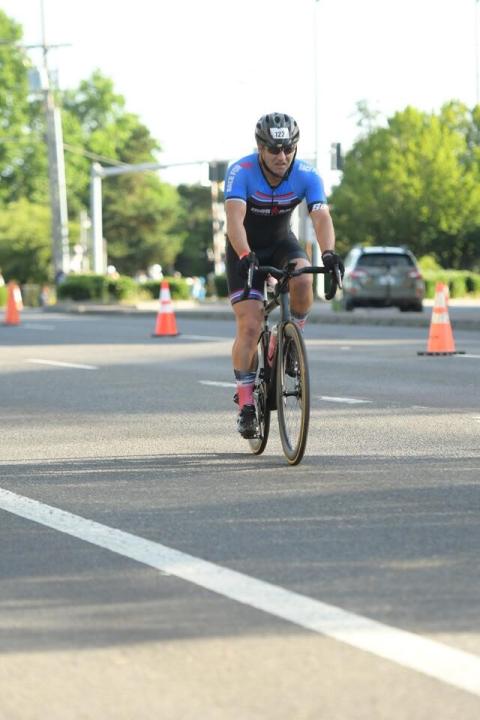
What advice would you give to your younger self? And to those starting out in plastic surgery?
My advice to the younger surgeons coming up through the ranks is to stay true to your core. I think it's very important to know who you are and what you're comfortable with. Never lose your integrity and your values that you've learned and you've been taught in your training. Also, I highly recommend the young surgeons on an altruistic basis as well as for their own growth, to get involved. Get involved with leadership. Get involved with their own community’s projects, as well as with the national societies such as The Aesthetic Society. I think being involved with something bigger than your own practice will keep you engaged, more emotionally upbeat, and make you feel rewarded by giving back to the community as well as to the specialty of plastic surgery that has been so good to us.
As for advice to my younger self, I would say trust myself and my instincts. When you're younger, you tend to doubt yourself. Knowing what I know now, I realize that by always trusting my instinct and my emotions is a good guiding principle in life.
Any funny patient story you would like to share?
In terms of a funny patient, I'm not sure it's funny, but it's a fun patient. One of my breast reconstruction patients, Eva, who came to me after a mastectomy for reconstruction comes to mind. Eva is a bright light who radiates positivity. I helped her through her reconstructions journey and through this journey, she taught me that I actually had some ability to dance. When her reconstruction came to an end, she was so happy with her results that she signed up to be part of the “Beyond the Before & After” Patient Stories docuseries through The Aesthetic Society. It showcased her reconstruction journey. During recording for that program, she came to my office for her last post op visit with her boombox in hand. She played a song and she actually had me dance with her in the exam room. We recorded and captured that special candid moment at the end of her journey. This was highlighted as part of her Before and After video. That was a fun and very happy moment.
Was there one plastic surgeon you looked up to starting out? Who was it? Why?
During my training, at Harvard Medical School and the Harvard Plastic Surgery Program, I was very fortunate to be exposed to many intelligent and accomplished plastic surgeons who were also my mentors. To name a couple that come to mind is Dr. Joe Murray, who I'm sure everybody's familiar with. He was the only plastic surgeon who was a Nobel Laureate. He won the Nobel Prize for performing the first kidney transplant. When I was a first year Harvard Medical student, I was introduced to Dr. Murray who subsequently became a mentor. He instilled in me the interest in pursuing plastic surgery. In fact, I did research at Brigham and Women’s Hospital, and we remained in touch. He came to all my poster presentations and was very instrumental in why I went into plastic surgery. The other person is Dr. Jim May, who was the chief of plastic surgery at Mass General Hospital. In addition to his surgical teaching, he was very helpful in terms of how to be objective thinkers in plastic surgery. To this date, when I face a challenging case, I ask myself what Dr. May would do.
What do you do in your spare time?
Being a full-time plastic surgeon, a husband, and a father there's not a whole lot of spare time. Then to become the president-elect of The Aesthetic Society, it becomes even more challenging to have “me time”. But I am a firm believer in work life balance and the emotional, spiritual, and physically well-being of the physicians. Burnout is a major issue in our specialty. I highly encourage my colleagues to take this seriously. For me, the way I relax is through physical activities. That's where I get my joy and meditation. That's where I feel like I can disengage from the work and focus on something that benefits my own mind and body. I love doing triathlon sports. I've done two Ironman races recently and I really enjoy the endurance aspect of triathlons. I think that's what we do in plastic surgery. We're endurance surgeons and we already have the mindset. I love sports in general. I also live in a college town which provides our family the opportunity to attend a lot of sporting events. The message is, try to maintain a work life balance whatever that means to you; I believe that's very important.
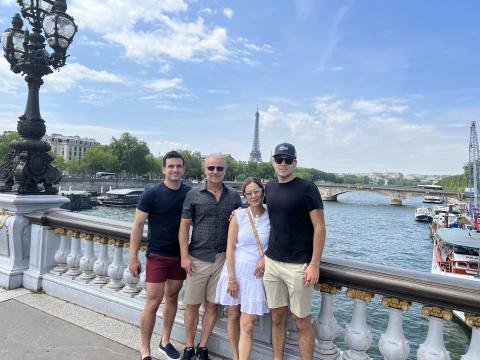
What place means a lot to you?
Going out in nature is where I go to lose my mind and connect with my soul and emotions. I think that was one of the attractions for me to come to Oregon. A lot of people would say, why did you go to Oregon? And the main reason was the geography here, the diversity of environment that we're exposed to, and the things I can do. It gives you the opportunity to see mountains, desert, ocean, lakes, snow and rain; you see it all. That's why I love Oregon.
Most surprising app you depend on…
You know I always brag about myself that except for professional use, I am not personally on social media. I'm proud of that, but I have to make an admission. I do have an app on my phone it's called Strava, it’s for sport junkies, athletes, and people who love being active. That’s my social media. You make friends and connections and can give each other kudos. Essentially, instead of “likes” that you would get on Instagram, I get “kudos” for doing a workout. I always check on other people to see what they're doing, so that's kind of my social media. My wife makes fun of me when I am on my phone by saying: “are you checking on other people’s workout again?!” So, that's my favorite app.
Do you listen to music while in surgery? If so, what is your favorite?
I love music and I would not do a surgery without listening to some kind of music. As a matter of fact, when I play my playlist in the operating room, people think it's a very eclectic selection of songs. You can never guess what the next song is going to be. I listen to a variety of music including old, new, new age, pop, rock, country, and international. As a matter of fact, I always quiz the staff and my fellows in the operating room as to how many languages they listen to during the case and usually it's about seven to eight different languages. I also have playlists that are designated for specific type of cases. For a face case, I listen to a mellower group of songs and I always tell my fellows that when you do face cases you really want to have calm hands and to have calm hands you have to have calm mind. So, that's a different cadence than for instance when you do a case below the neck which requires a more upbeat playlist. So, it all depends what the case calls for.
I couldn’t do without …
I couldn't do anything without music. Whether I'm exercising or I am in the operating room, I need to have my music. And as a matter of fact, in every surgery center that I have worked in, they have purchased a speaker that has the perfect sound quality because they know I love my music and I do not operate without that speaker in my room.

